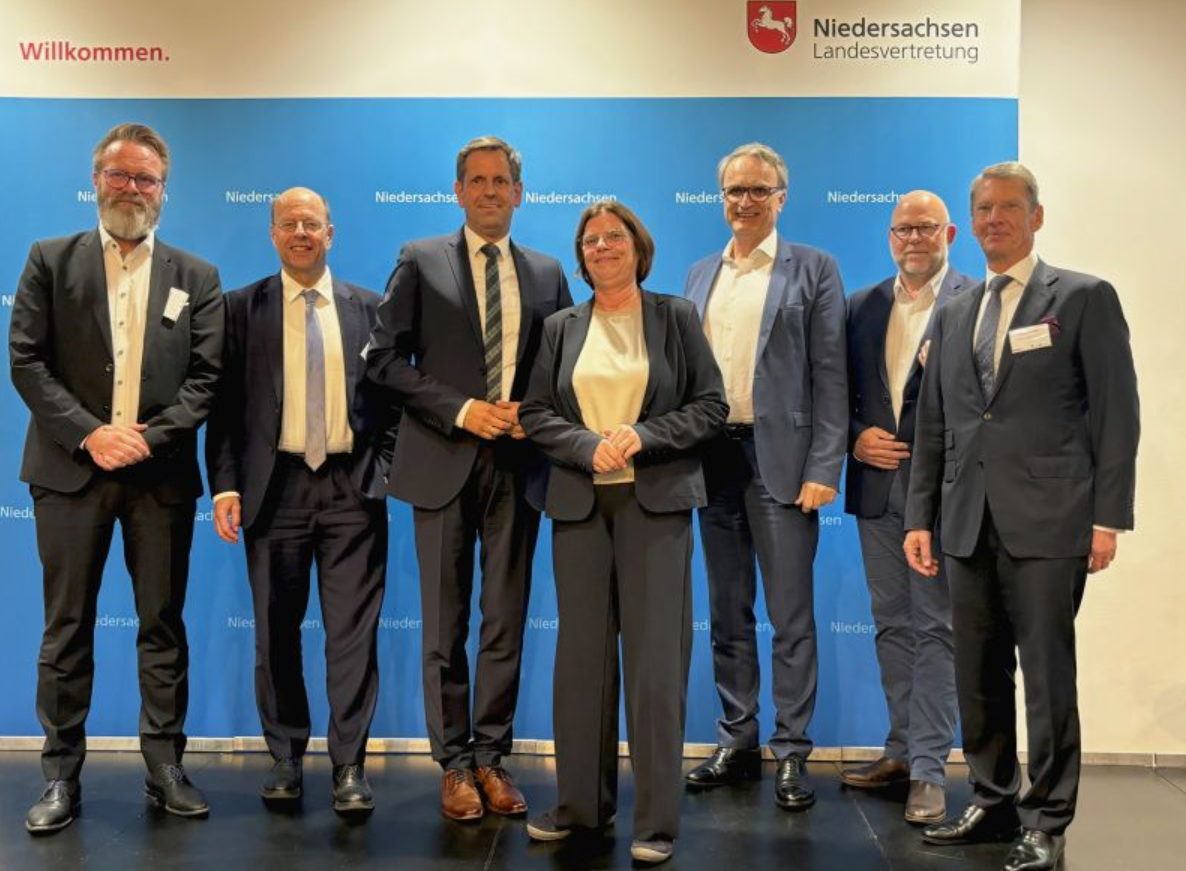
Port of Hamburg”Port expansion is a national task – no energy turnaround without functioning ports!” This strong statement echoed through the halls of the Representation of the Federal State of Lower Saxony in Berlin, where around 170 guests gathered for the reception of the German seaports. The event underscored the critical role that Germany’s ports play in the nation’s economy and its ambitious energy transition plans.
Daniela Kluckert, Parliamentary State Secretary at the Federal Ministry of Digital Affairs and Transport, kicked off the event with a compelling opening speech. The sentiment was clear: Germany’s ports are not just gateways for trade but are pivotal for the country’s energy future. Prof. Dr. Sebastian Jürgens, Vice President of the Central Association of German Seaport Operators, and his co-hosts emphasized the urgent need to expand port infrastructure, aligning with the National Ports Strategy.
Axel Mattern, CEO of Port of Hamburg Marketing, highlighted the indispensable role of ports in Germany’s economic landscape. “A resilient Germany is unthinkable without the ports. Not only will a large proportion of renewable energies be handled and produced here in the future, but the ports are already essential for the export and import of numerous goods and raw materials crucial for the German economy to continue thriving. Therefore, it is extremely important that the expansion and maintenance of the infrastructure is also supported by the federal government,” Mattern stressed.
The event wasn’t just about speeches; it featured a dynamic panel discussion with top political representatives from Germany’s five coastal states. The consensus was unanimous: the success of the energy transition hinges on the efficiency and functionality of the ports. To meet Germany’s ambitious climate goals, vast quantities of alternative, climate-friendly energy sources need to be imported, and this makes robust port infrastructure more crucial than ever.
It’s clear that ports are at the heart of Germany’s economic and environmental strategies. As the nation moves towards a greener future, the importance of its ports cannot be overstated. They are the lifelines through which not only goods and raw materials flow but also the very energy that will power tomorrow’s industries. The federal government’s support in expanding and maintaining this infrastructure is not just a matter of economic convenience but a strategic necessity.
The reception was a collaborative effort, thanks to the excellent co-organisation by Seaports of Niedersachsen GmbH, bremenports GmbH & Co. KG, and ZDS – Zentralverband der deutschen Seehafenbetriebe. The event fostered meaningful exchanges and reinforced the shared commitment to bolstering Germany’s port infrastructure.
In the rapidly evolving landscape of global trade and renewable energy, Germany’s ports stand as pillars of resilience and innovation. As stakeholders from various sectors came together in Berlin, the message was clear: the path to a sustainable and prosperous future for Germany is anchored in the strength and functionality of its ports.

